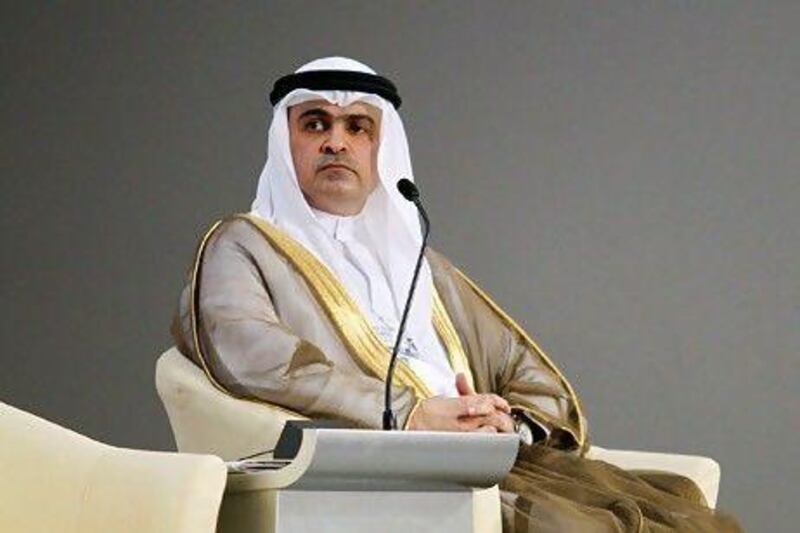At the opening of the World Economic Forum's "brainstorming" sessions in Dubai this week, UAE policymakers took the opportunity to paint an optimistic picture of the country's economy, and with much justification.
Since the financial crisis, the economy has broadly been brought back on track. GDP growth this year will be somewhere above the 4 per cent mark, on target to top the Dh1 trillion (US$272.25 billion) level for the first time.
The policy of diversification away from oil dependency is paying off, with energy revenue now accounting for less than 30 per cent of total GDP. All the other indicators - foreign direct investment, competitiveness, human development indexes - are heading in the right direction.
In Dubai, the turnaround has been even more remarkable. The emirate's darkest hour was probably in November 2009, when the restructuring of Dubai World was announced. The risk of default and financial meltdown was avoided by shrewd financial management of the restructuring negotiations.
There is no doubt that Dubai has turned the corner in almost all aspects of the economic situation. The three main dynamos of its wealth - trade, transport and logistics - are well ahead of pre-2008 levels. Malls, hotels, harbours and airports are full.
There have been consistent signs of improvement in property prices, perhaps the main reason for the severity of the Dubai fall in 2009. The emirate's banks are still tackling the legacy of those times, in terms of dealing with high levels of bad debts, but they are well capitalised and enjoy strong support from the authorities.
The chances of any bank collapsing in Dubai are remote.
Sami Al Qamzi, the director general of the Dubai Department of Economic Development, summed up all this progress eloquently at the WEF summit, and in an opinion article in The National yesterday.
But there was one item in his catalogue of post-crisis achievements and ambitions that caused some concern among economists and other experts at the WEF talks.
Mr Al Qamzi said: "The objectives include sustaining real economic growth at a rate of 11 per cent per annum to reach a GDP of $108bn by 2015."
This objective seems to be a revival of the targets set out in the 2007 strategy paper which, back then, aimed to guide Dubai's economic development over the next eight years, making it "an Arab city of global significance", in the words of the document.
Those were the days.
The Dubai economy was buoyed on a flood of tourists, shoppers and (most important) property developers and investors. Credit was easy, and the global banks were willing to pour cheap money into the business-friendly emirate. Anything seemed possible, even a GDP growth rate equal to that of China.
The crisis put paid to that ambition, if it was ever really achievable. Can the 11 per cent target be hit now, in the very different circumstances of late 2012? American fiscal problems, the euro-zone crisis, and fears about an Asian slowdown all argue that such a growth rate for Dubai is highly ambitious, however well the economy has recovered.
But the really significant question being posed at the WEF summit was whether such a target was desirable at all.
Some economists were firmly of the opinion that the three Ts - trade, transport and tourism - would be hard pressed to propel Dubai's economy to such an accelerated rate of growth on their own. It could only be achieved, they said, with a phenomenal revival of the property sector.
The danger is that this would recreate all the conditions for an asset "bubble" such as the emirate experienced in the year 2002-2008. Sharply rising property prices bring financial and social strains of their own.
None of this is to argue that a continuation of depressed property prices is in Dubai's interest. But surely a gradual improvement, rather than the vertical take-off implied by the 11 per cent target, is preferable.
Dubai is applauded for its diversification away from energy dependency. It would be counterproductive if this were replaced, once more, by a dependency on booming property prices.





